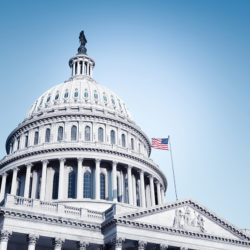On October 19, 2022, IECA members Bar Clarke, Karen Mabie, Heidi Molbak, and Jesse Quam joined CEO Mark Sklarow in presenting to the senior staff of the Senate Committee that oversees a wide area of legislative responsibility. The US Senate Committee on Health, Education, Labor and Pensions (HELP) requested IECA’s input as it explores adolescents and mental health, with a particular focus on health and safety of teens in therapeutic residential programs. Staff leaders representing Senator Patty Murray (WA) and IECA’s legislative counsel, Craig Saperstein of Pillsbury Law, also participated in the meeting.
At the outset, IECA had the chance to explain the Association’s work, our criteria for membership, and earning designations in therapeutic placements. IECA’s Principles of Good Practice, our Standards of Excellence and training new independent educational consultants (IECs) through our Summer Training Institute were all explored by the Committee staff. They seemed particularly interested in our prohibition against accepting kickbacks or expensive gifts as well as the role IECs play beyond student placement including after-care, family dynamics, and communication with parties during treatment periods.
In response to questions about campus visits, IECA members noted that being able to visit a campus and speak with students was incredibly valuable, and that the online Member Network allows IECA members to find trusted colleagues who may have a recent experience with a program. Mark Sklarow cautioned that while IECA members can visit programs, these are planned and controlled, and that state government and credentialing organization hold greater authority in evaluative visits which can be unscheduled and more invasive.
The Senate Committee staffers seemed interested to learn that IECs are, at times, brought on to assist a school district in finding residential care when local options have been exhausted. Likewise, referrals from psychologists and other professionals were discussed.
Bringing up the “horror stories” at programs that surfaced in the news recently, the IECA team offered several insights. They noted that many of these stories relate to instances more than two decades old, which was followed by a period of dramatic change and improvement in program staff training, new policies to safeguard children, and the like. Additionally, we noted that many of the stories specifically relate to publicly financed programs, not those privately held. Even so, the IECA team was clear that IECA supports new legislation that can assure the safety and care of teens, including extensive staff training on therapeutic holds and isolation, record-keeping, improved communication between teens and parents, and recognition of client rights.
IECA also addressed the work of some unaffiliated consultants who act as program recruiters or agents, accepting kickbacks (while masquerading as IECs), and indicated that such actions hurt the professional reputation of legitimate IECs. IECA endorsed mental health parity and expressed concern that those who go too far to attack all therapeutic schools and programs run the risk of stigmatizing adolescents seeking mental health care.
IECA and our Therapeutic and Government Relations Committees anticipate providing additional input to the Senate Committee in the new legislative year.


